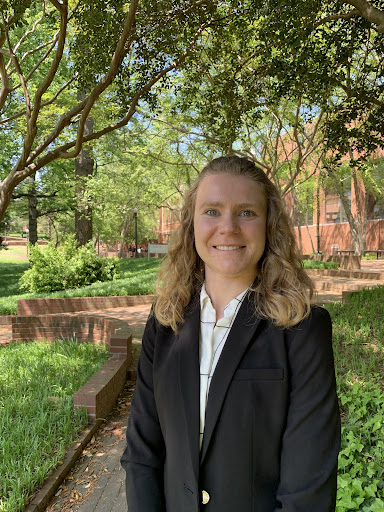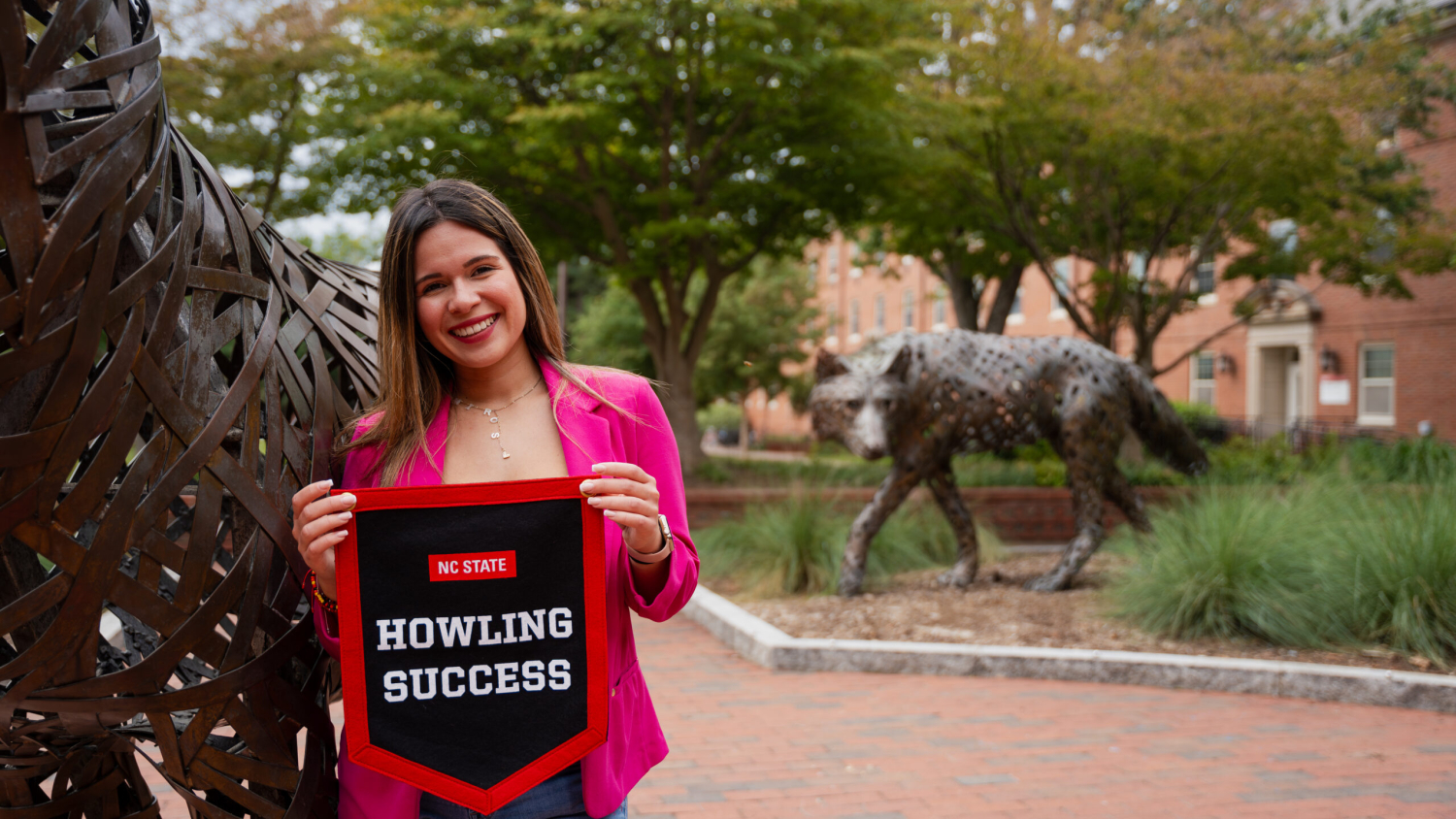MIS Internship Spotlight: Serena Waters

Tell Us About Yourself.
I mostly grew up in New Hampshire but had stints living in Japan, Sweden and Germany before I began college. My family has resided in Raleigh for the past seven years. I received a B.A. in global studies with a concentration in international economics from the University of Richmond in 2018. After undergrad and prior to MIS, I was teaching English in Japan as a participant in the JET program. I was in a small town called Nanao on the west coast of Japan for two years.

What internships have you been involved in since being in the MIS program?
I interned at the Proposal Development Unit (PDU) at NC State and for Japan Studies at the Council on Foreign Relations (CFR). I have also been a research assistant for Dr. Boettcher and Dr. Liao.
How have these internships impacted your future career goals?
I realized early on at the beginning of my second year in the MIS program that research was a career I wanted to go into, and the internship at CFR was therefore a great opportunity to gain firsthand knowledge of what that would look like. At CFR, 95% of my time is spent conducting research. My main focus has been on proposed economic security legislation and Japan’s response to the situation in Ukraine, so I learned what research in a professional setting looks like.
My supervisor is a research associate and working with her enabled me to see what aspects the job truly covers and what skills are needed. Prior to the internship, I did not know that RA’s are also in charge of administrative tasks, budgeting and keeping track of grants, alongside research. Now knowing this information, I am better informed and it has solidified my desire to pursue research assistant positions as my future career. Working at the PDU also helped me realize that research is where my strengths lie and careers that focus on that fit my skill set best.
What have you found to be the most interesting and/or challenging part of the internship?
The most interesting part of interning at CFR has been being inside the organization. I have looked at so many articles they put out but had no idea what went on behind the scenes. Though I work remotely and haven’t gotten the full experience of the organization, I have still had the opportunity to attend all-staff meetings, professional development seminars, roundtables and other talks they hold — and have seen all of the other aspects that exist and how CFR is run.
The most challenging part has been ensuring I am an effective communicator. All of the research I conduct I compile into memos, and it has been a learning curve realizing how the RA and senior fellow read and understand the information is not the same way I do. I may think I have put everything in the memo in a clear way, but when others read it they are confused. It has taught me to explicitly write out everything in as clear language as I can.
What has been your favorite part of the internship?
My favorite part of the internship has been engaging with other professional thinkers outside of a classroom or academic setting. At the roundtables and some of the professional development seminars, the Fellows or other professionals simply have conversations about their work or current event topics; there is more focus on fielding questions than just giving a lecture. I have learned some really interesting information this way, on topics that I would not have otherwise engaged in, such as learning about the functions of the Coast Guard.
What advice do you have for students considering participating in an internship?
I think every student knows that internships are a great opportunity and that you unfortunately need them in most instances if you want to be hired today. My advice in terms of this though is that you don’t have to have the perfect internship or work at the most prestigious place because it will look good on your resume. You can approach an internship either from thinking about what skills you will need in the career you want to pursue, and think about whether an internship will align with those. Alternatively, and I have at this experience, don’t discount an internship just because it is not in a field you are thinking of pursuing. You will still learn valuable skills and professional development; I had never worked in an office in the US before so something as simple as this I gained from my internship experiences.
- Categories:


